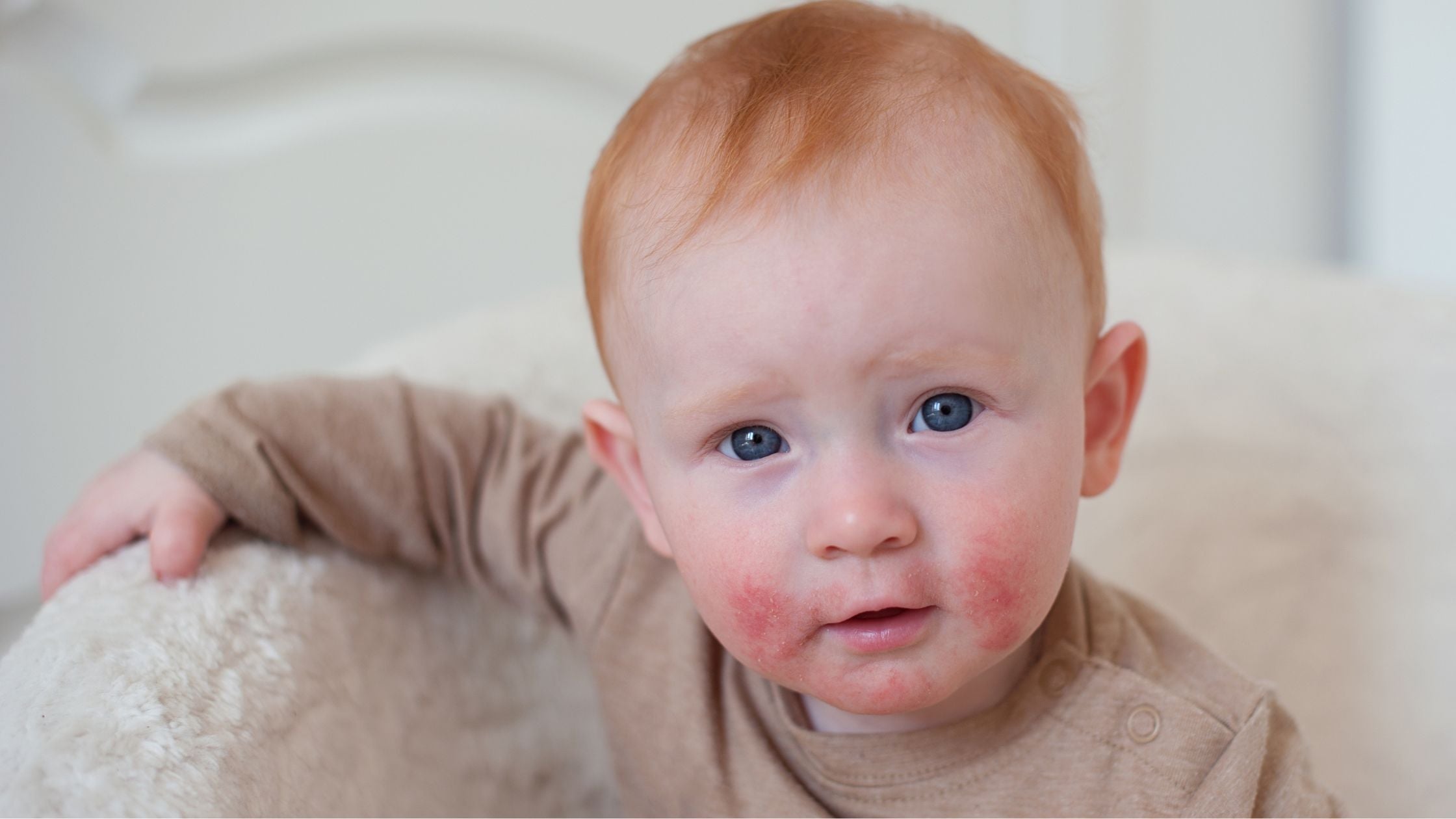What’s the Difference Between Atopic Dermatitis and Contact Dermatitis?

What’s the Difference Between Atopic Dermatitis and Contact Dermatitis?
If your child struggles with eczema, you might become absorbed in finding the right products and skincare routine to bring comfort to their skin. While this is a crucial step (and where our Oatmeal Bath Soak and Eczema Moisturiser can help), we sometimes don’t realise that there are different types of eczema that can be triggered in different ways. Understanding the different types of eczema can help us better manage our children’s skin, which is a why a diagnosis from a medical professional is so important.
Today, we’re exploring the difference between two common types of eczema: atopic dermatitis and contact dermatitis.
What is atopic dermatitis?
Atopic dermatitis (also known as atopic eczema) is the most common type of eczema. It happens when the immune system doesn’t function properly and responds exaggeratedly to an allergen or irritant inside or outside the body. It usually appears within the first six months of life, especially in children with a family history of hay fever, asthma or eczema (known as the atopic triad). Research has shown that people with atopic dermatitis can have a mutation in the gene responsible for creating filaggrin – a protein that helps to support a protective barrier on the skin to keep irritants from entering the body. Without filaggrin, moisture can escape, and bacteria or viruses can enter, resulting in dry skin, which can make it more prone to infections.
Some common symptoms of atopic dermatitis can include:
- Redness
- Dry and itchy skin
- Rashes on different parts of the body – especially cheeks, arms and legs
- Open, crusted sores as well as cracks on the skin, which might mean there is an infection
What makes atopic dermatitis worse?
Some common triggers that can make atopic dermatitis worse include:
- Warm weather – hot skin can feel itchy, and sweat on the skin can also feel itchy and pricky, resulting in more scratching
- Cold weather – skin can become very dry, scaly and rough
- Some household products, such as laundry detergent, fragranced shampoo and soaps
- Contact with scratchy clothing or allergens like pollen or dust
What is contact dermatitis?
Contact dermatitis happens when the skin touches irritating substances. Unlike atopic dermatitis, contact dermatitis is not linked with genetics and isn’t associated with other conditions like hay fever and asthma. It is an immune-mediated skin rash that occurs at the site of contact with an irritant or allergen, causing the skin to be inflamed, itchy and red. The signs and symptoms of contact dermatitis may appear similar to those of atopic dermatitis, such as itchiness, irritated dry skin, redness, burning or swelling, and blisters that may crust over.
There are two main types of contact dermatitis:
Irritant contact dermatitis – when skin touches an irritating substance and has an immediate reaction. Common irritants that can trigger this type of contact dermatitis can include harsh chemicals and detergents, soaps, hair dye, makeup and metals like nickel that can often be found in jewellery, clothing and accessories.
Allergic contact dermatitis – when the skin comes in contact with an allergen and develops a reaction within 48-96 hours. Common allergens can include certain plants, rubber, nickel, cosmetics and fragrances.
How can I manage my child’s dermatitis flare-ups?
Knowing what can trigger your child’s eczema helps to manage flare-ups. If you’re unsure what is causing your little one’s skin flare-ups, it’s best to consult with a medical professional. They will also be able to advise on the best way to manage flare-ups.
If your child has contact dermatitis, make sure to avoid substances that cause a reaction. You can keep a record of products that trigger your child’s eczema so you are more confident of what the triggers could be, as well as read the labels of products to ensure they don’t contain ingredients that might cause flare-ups.
For the most common type of eczema, atopic dermatitis, it’s important to avoid triggers and maintain a daily bathing and moisturising routine. Regular bathing using Itchy Baby Co. Natural Oatmeal Bath Soak gently cleanses the skin, washing away irritants that are sitting on the surface. Our bath soak also helps to moisturise the skin and prepare it to absorb the most nourishment from your moisturiser for long-lasting skin protection and hydration.
This blog post was brought to you and your family with love from the Itchy Baby Co. team x.
Disclaimer: Information provided is of a general nature only, and you should always consult your medical professional.





